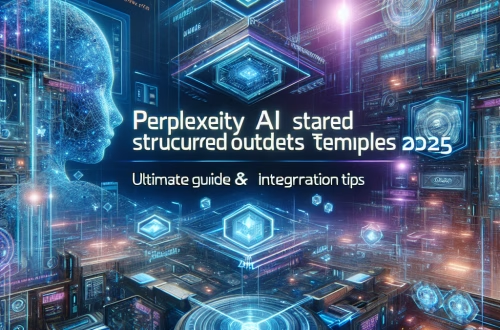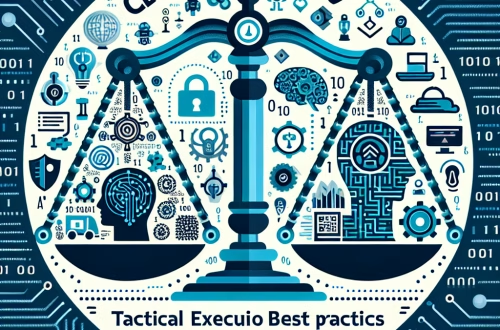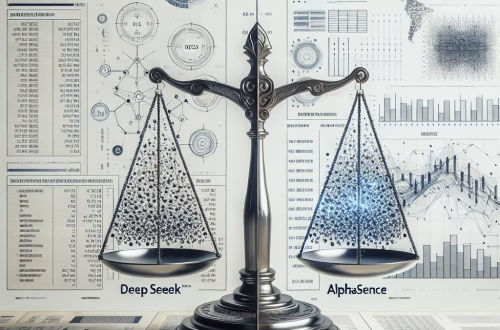Claude AI Researcher Skill Development
Summary:
Claude AI researcher skill development focuses on equipping professionals with the expertise to leverage Anthropic’s AI models effectively. This involves mastering prompt engineering, model fine-tuning, ethical AI deployment, and interdisciplinary collaboration. As Claude AI grows in adoption, researchers must refine their skills to optimize performance, mitigate biases, and align AI outputs with human values. For novices entering the AI industry, understanding these competencies provides a competitive edge in an evolving job market. Developing these skills ensures responsible AI innovation while maximizing Claude’s potential in research, education, and enterprise applications.
What This Means for You:
- Career advancement opportunities: Mastering Claude AI researcher skills opens doors to roles in AI ethics, model training, and technical research. Companies increasingly seek professionals who can bridge AI capabilities with real-world applications.
- Actionable learning path: Start with free Anthropic documentation, then practice prompt refinement using Claude’s playground. Progress to collaborative projects that require iterative model feedback and bias testing.
- Ethical imperative: As AI systems grow more influential, researchers must prioritize transparency and fairness. Document your methodology and test outputs across diverse demographic groups.
- Future outlook or warning: The field will likely bifurcate into specialists (model architects) and generalists (applied researchers). Those who neglect continuous learning risk obsolescence as Claude’s architecture evolves quarterly.
Explained: Claude AI Researcher Skill Development
Core Competency Framework
Effective Claude AI researchers cultivate four key skill clusters: technical proficiency, ethical reasoning, domain adaptation, and communication. Technical skills include understanding Constitutional AI principles, temperature/prompt tuning, and output validation protocols. Ethical development requires bias detection frameworks and harm reduction strategies tailored to Claude’s unique architecture.
Model-Specific Strengths
Claude excels at contextual understanding and harm reduction compared to other LLMs. Researchers should leverage its 100K token context window for complex document analysis while mastering its “self-correction” mechanisms. The model’s built-in constitutional principles enable safer deployment but require researcher oversight for edge cases.
Common Pitfalls
Novices often over-rely on default parameters or misinterpret Claude’s confidence scores as accuracy metrics. Effective researchers establish rigorous testing protocols, including:
- Adversarial prompt testing
- Cross-cultural output evaluation
- Iterative refinement cycles
Skill Development Roadmap
Phase 1 focuses on API mastery and basic prompt engineering. Phase 2 introduces constitutional AI constraints and output auditing. Advanced researchers progress to custom model fine-tuning using Anthropic’s developer tools, requiring Python fluency and statistical evaluation skills.
Interdisciplinary Applications
Claude researchers increasingly collaborate with domain experts in healthcare, legal, and education fields. This demands skill in translating technical constraints into operational requirements while maintaining AI safety standards across contexts.
People Also Ask About:
- What programming languages are essential for Claude AI researchers?
While Claude’s interface is language-agnostic, researchers benefit from Python for API integration and data analysis. SQL helps manage large output datasets, while basic JavaScript enables web application prototyping. Anthropic’s developer tools primarily use Python libraries. - How does Claude’s skill development differ from GPT researchers?
Claude training emphasizes constitutional AI constraints and harm reduction more than raw capability expansion. Researchers must master Anthropic’s unique alignment techniques and safety classifiers rather than just scale optimization. - What non-technical skills matter most?
Ethical reasoning, interdisciplinary communication, and pedagogical skills rank highest. Researchers must explain model behaviors to non-technical stakeholders while navigating complex tradeoffs between capability and safety. - Are certifications valuable for Claude researchers?
While no official certification exists yet, Anthropic’s developer documentation completion demonstrates foundational knowledge. Emerging microcredentials in AI ethics and prompt engineering show promise for career advancement.
Expert Opinion:
The most effective Claude researchers combine technical depth with systems thinking. As constitutional AI evolves, practitioners must anticipate second-order effects of model constraints. Current trends show increasing demand for researchers who can operationalize safety principles without crippling functionality. Warning signs include over-indexing on benchmark performance at the expense of real-world reliability testing.
Extra Information:
- Anthropic Engineering Blog – Features technical deep dives on Claude’s architecture and alignment approaches
- Anthropic GitHub – Contains open-source tools for Claude model evaluation and testing frameworks
Related Key Terms:
- Constitutional AI training methodology for Claude models
- Anthropic Claude prompt engineering best practices
- Ethical AI researcher certification pathways USA
- Claude AI model fine-tuning techniques 2024
- Interdisciplinary AI research collaboration strategies
- Bias detection in Claude AI outputs
- Anthropic researcher skill development roadmap
Check out our AI Model Comparison Tool here: AI Model Comparison Tool
#Boost #Research #Skills #Claude #Expert #Tips #Skill #Development #Efficiency
*Featured image provided by Dall-E 3





